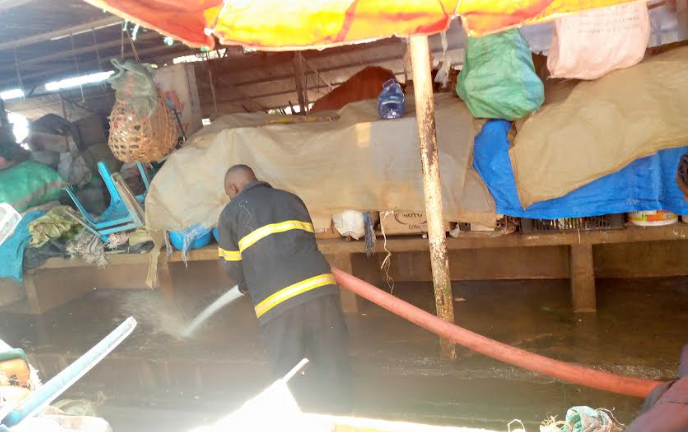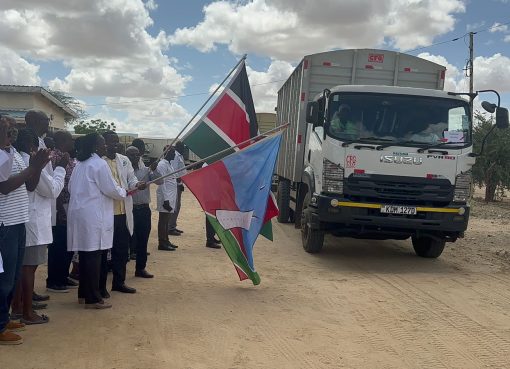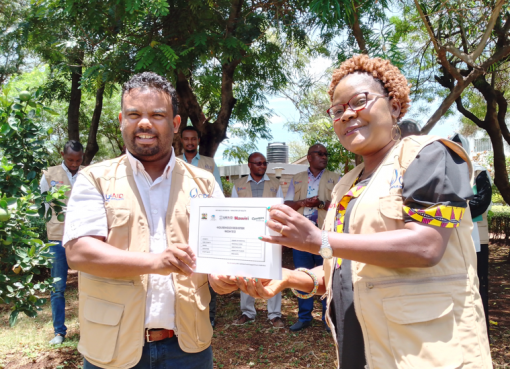Traders in Kisumu County have held a clean-up exercise at the Jubilee Market to sensitise members on market cleanliness and preventive measures against the spread of M-pox disease.
The clean-up campaign organised by the County Government in partnership with the Kenya Red Cross and other partners, targeted to create awareness of upholding a high standard of hygiene in the trading centre.
Kennedy Owuor, from the Kenya Red Cross, described the activity as a campaign tool for hygiene, highlighting that other areas have already benefitted from the exercise.
“This is the first time the Kenya Red Cross is carrying out clean-up activity in Jubilee Market. However, the traders have been conducting regular cleaning exercise here by themselves,” he stated.
He added, “It’s just an eye opener; even if you have been doing clean-up activity, you should keep doing it, even if not daily but occasionally, so that the space is always clean.”
Traders were urged to maintain high standards of market hygiene while considering the untidy environment as a health hazard.
Additionally, traders were notified about the spread and prevention of M-pox disease, whose national tally now stands at seven.
“We also have M-Pox sensitisation programme events to help the locals. We realise it’s transmitted through surfaces, touch, and even close contact with someone who is infected,” Owuor added.
Speaking during the clean-up exercise, the Chairperson of Jubilee Market, Martin Oluoch, expressed his joy for the tremendous support from the Kenya Red Cross towards the restoration of the cleanliness of the market.
He affirmed their readiness to keep the market clean. “We have dustbins all over the market. This helps us to dispose of litter collected within and around the market place,” he said.
However, he pleaded for early disposal of the collected garbage by the county government to help in reducing air pollution around the market.
On the other hand, Fridah Awinja, a businesswoman, stressed on the need for expanding and reclaiming the parking lots which have been occupied by other traders.
By Ouma Zakayo and Fiona Kalunde





